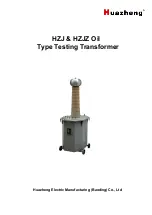
Preliminary Release
Alligator Communications Model 2788 Technical Manual REV2.3 Copyright © 2019
Page 26
6.0 Theory of Operation
The 2788 concurrently operates transparently using two communication interfaces: Ethernet
and RS-232 (Fig. 1). The 2788 encapsulates any protocol in a proprietary Alligator format to
encrypt and forward multiple packet fragments across a UHF radio link and reassemble them
seamlessly. It is most easily understood as a wire transmission with added latency due to time
taken for transmission over a 12.5 kHz channel at 9600 bps along with delays due to packet
screening, assembly and encryption.
6.1 RS-232 Communications
The RS-232 communications interface forwards all incoming serial data with no screening. It
operates at one of five programmable data rates: 1200, 2400, 4800, 9600, 19200 and 38400
bps. There is no RTS or CTS data flow control required because data is forwarded based on TXD
line activity. This permits a simple three wire interface consisting of TXD, RXD, and GND.
6.2 Ethernet Communications
All Ethernet packets (UDP, TCP/IP, Ping, ARP, . . .) are recognized and can be transparently
forwarded over the RF network.
6.2.1 Packet Forwarding
The Ethernet communications interface forwards incoming IP packets, provided that they pass
a user-programmable forwarding screen
ing
test. Packet forward screening is done to minimize
data traffic not intended for the radio network that could otherwise flood the system. The 2788
has four programmable forwarding modes:
1.
No Screening
2.
Host Screening
3.
RTU Screening
4.
RTU and Host Screening
The simplest forwarding mode does not screen any packets. This is referred to as the IP
promiscuous mode and is only used in small systems where flooding by unwanted packets is
improbable. It is not recommended in systems with either the master or remote ends tied to
LANs due to the flooding potential. The 2788 defaults in this mode for testing but is not
recommended for field deployment.
The host screening mode is highly recommended for packet forwarding on the master radio. At
the master radio, a host table with up to 16 entries is created by the user with a list of host
MAC addresses. Only packets originating by authorized hosts on the MAC table are forwarded.
The remote radio can also be configured for host filtering. This causes the remote radio to
forward only packets originating from the RTU back over the RF link that are destined for an
authorized host MAC address. This greatly reduces the probability of system flooding.
The RTU screening mode is used so that only packets destined for authorized RTU MAC
addresses are forwarded. At the master radio, an RTU table with up to 512 entries is created by
the user with a list of RTU MAC addresses. Only packets destined for authorized RTUs on the






































